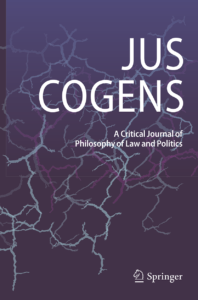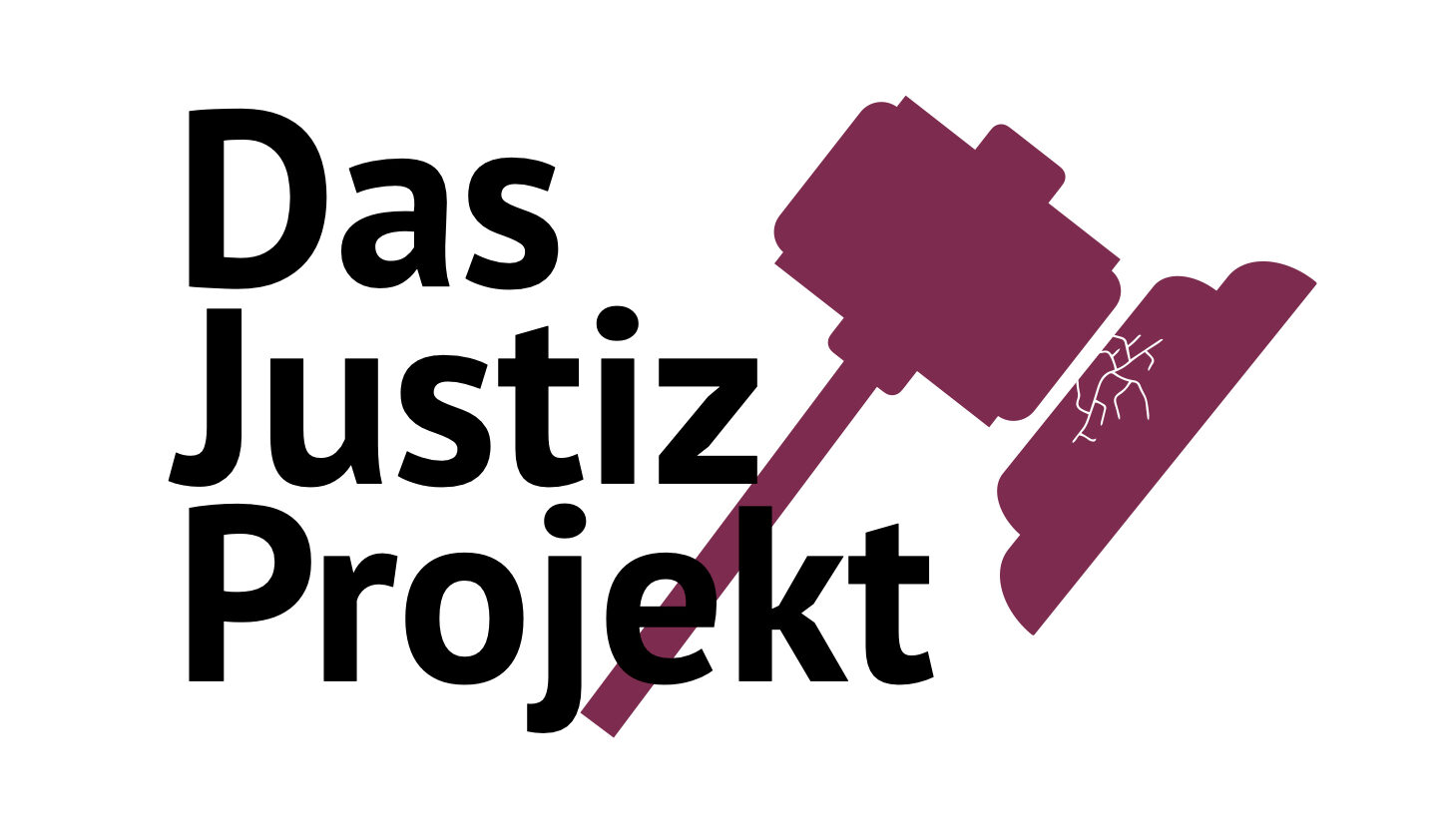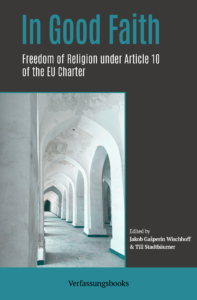Warum der erneute Angriff der USA und Israels auf den Iran offenkundig völkerrechtswidrig ist
Nach wochenlangen Drohungen haben die Vereinigten Staaten und Israel den Iran angegriffen. Noch ist offen, ob die Militärschläge den Auftakt zu einem längeren Konflikt markieren. Schon jetzt ist aber klar: Die Angriffe der USA und Israels sind offenkundig rechtswidrig. Sie verletzen das Gewaltverbot aus Art. 2 Abs. 4 der UN-Charta in einer Weise, wie sie kaum eindeutiger sein könnte.
Continue reading >>Missverständnisse zur Mietpreisbremse
Mit Beschluss vom 8. Januar 2026 hat das BVerfG die Verlängerung der Mietpreisbremse für verfassungsgemäß erklärt. Damit bestätigt es eine Entscheidung aus 2019, in der es bereits die – zunächst zeitlich befristete – Einführung der Mietpreisbremse gebilligt hatte. Auf den ersten Blick scheint die bloße Bestätigung der früheren Entscheidung kaum der Rede wert. Wie so oft teilt Karlsruhe die relevanten Nachrichten aber nicht im Tenor, sondern zwischen den Zeilen mit. Bei genauerem Hinsehen räumt das Gericht nämlich mit einer Reihe von Missverständnissen auf, für die seine frühere Entscheidung Anlass gegeben haben mag.
Continue reading >>“Muskism Proposes Something More Like Social War”
Elon Musk’s influence extends far beyond business – and it continues to grow. But to understand how powerful and how potentially dangerous for democracy Musk’s empire truly is, one has to examine the worldview that made his rise possible. In their new book, the historian Quinn Slobodian and the writer Ben Tarnoff trace the ascent of the self-styled “Technoking” and the idea of fusing human beings with machines. We spoke with them about Musk’s relationship with the state, “cyborg conservatism,” and whether anything can still counter the fusion of political and digital power.
Continue reading >>„Muskismus setzt eher auf sozialen Krieg“
Elon Musks Macht reicht weit über die Wirtschaft hinaus. Und sie nimmt zu. Um zu verstehen, wie gefährlich Musks Imperium für die Demokratie tatsächlich ist, muss man das dahinterstehende Weltverständnis in den Blick nehmen. In ihrem neuen Buch zeichnen der Historiker Quinn Slobodian und der Autor Ben Tarnoff den Aufstieg des selbsternannten „Technoking“ nach und analysieren seine Idee einer Verschmelzung von Mensch und Maschine. Wir haben mit ihnen über Musks Verhältnis zum Staat gesprochen, über „Cyborg-Konservativismus“ – und über die Frage, ob sich der Symbiose von politischer und digitaler Macht noch etwas entgegensetzen lässt.
Continue reading >>Wenn Vertrauensleute Vertrauen zerstören
Die Enttarnung einer V-Person in Bremen schlägt hohe Wellen. Über acht Jahre lang soll Dîlan S. im Auftrag des Bremer Verfassungsschutzes die Bremer Gruppe der Interventionistischen Linken bespitzelt haben. Die öffentliche Diskussion verlagerte sich früh auf das ehemalige Mitglied des Bremer Staatsgerichtshofs, Anatol Anuschewski, der bei der Enttarnung des V-Manns dabei gewesen sein soll. Was dabei ins Hintertreffen geriet: die Aufarbeitung des V-Mann-Einsatzes selbst. Denn wenn man die aktuelle Rechtsprechung des Bundesverfassungsgerichts zugrunde legt, dürfte der Einsatz von Dîlan S. gleich aus mehreren Gründen rechtswidrig gewesen sein.
Continue reading >>Viel gewollt, noch nicht genug versucht
Das "Gesetz zur Parlamentsreform 2026" sollen Sachsen-Anhalt resilienter machen: Das Landesverfassungsgericht wird abgesichert, die Existenz der Landeszentrale für politische Bildung gesetzlich verankert und die konstituierende Sitzung vor einer Vereinnahmung durch die AfD geschützt. Sachsen-Anhalt reiht sich damit ein in die Resilienzgesetzgebung und der Entwurf vereint Erfahrungen aus der Vergangenheit mit Erkenntnissen aus der laufenden Resilienzdebatte. Der Gesetzgeber nimmt sich damit viel vor und die Zeit ist knapp, bereits im September wird in Sachsen-Anhalt gewählt. Das ist ambitioniert, gelingt an vielen Stellen, bleibt an anderen aber auch lückenhaft und birgt Obstruktionsrisiken.
Continue reading >>The Securitarian Turn in Italian Criminal Law
In 2025 and 2026, Italy’s far-right government pushed through two far-reaching “Security Decrees” using emergency powers. The two Security Decrees differ in content and together amount to a wide-ranging reform of the Italian criminal justice system. Yet, despite their apparent heterogeneity, they share a number of features that point to a common securitarian and illiberal approach.
Continue reading >>Social-Media-Verbot à la française
Nun diskutiert auch Deutschland über ein Mindestalter für die Nutzung sozialer Medien. Andere Länder sind da schon weiter: Frankreichs Nationalversammlung hat Ende Januar einen entsprechenden Gesetzesentwurf verabschiedet. In seinem entsprechenden Gutachten hat der französische Staatsrat einige verfassungs- und unionsrechtliche Spannungslagen herausgearbeitet, die auch für die deutsche Debatte Orientierung bieten können. Außerdem legt die Stellungnahme durch ihre flexible Handhabung der Verhältnismäßigkeitsprüfung auch einige blinde Flecken der deutlich rigideren deutschen Verhältnismäßigkeitsdogmatik offen.
Continue reading >>Paradigmenwechsel in der Privatschulregulierung
Wegen des sogenannten Sonderungsverbots darf der Staat private Ersatzschulen nur dann genehmigen, wenn unter anderem „eine Sonderung der Schüler nach den Besitzverhältnissen der Eltern nicht gefördert wird“. Vor fast zehn Jahren hatten Forschungen am Wissenschaftszentrum Berlin für Sozialforschung eine breite Debatte darüber ausgelöst, dass das Privatschulwesen in Deutschland sozial selektiver wird. Am 25. Februar stimmt das Berliner Abgeordnetenhaus nun über eine Gesetzesnovelle ab, die das Privatschulwesen gerechter ausgestalten soll. Um die Neuregelung wurde bis zuletzt gerungen – doch die verfassungsrechtliche Kritik daran ist im Ergebnis nicht begründet.
Continue reading >>The Castle Method
The EU leaders’ informal competitiveness retreat at Alden Biesen Castle on 12 February produced a joint statement with a familiar ambition: completing the Single Market. Less noticed, however, is that the statement also sketches a programme of institutional and procedural reform. It is an attempt to re-engineer, through an informal summit, the EU’s constitutional and institutional architecture, without the safeguards of formal Treaty revision.
Continue reading >>CURRENT DEBATES
Reflexive Globalisation and the Law
In October 2025, a new Centre for Advanced Studies was established at the Humboldt University of Berlin’s Law Faculty. Named “Reflexive Globalisation and the Law: Colonial Legacies and their Implications in the 21st Century” (RefLex), the Centre explores the premise that the globalisation of law and legal discourse has entered a reflexive phase: one in which law and knowledge production about law are less and less one-directional exports from or within the Global North but rather dynamic, multidirectional exchanges that confront colonial legacies, epistemic hierarchies, and enduring asymmetries of power. This blog symposium, co-edited by Philipp Dann, Florian Jeßberger, and Kalika Mehta, aims to present and extend these interactions to a broader, accessible dialogue with a wider community beyond the university setting. Featuring contributions from a range of different disciplines and regions, the symposium serves as a public prelude to its official launch, which can be watched live here.
Read all articles >>Wem gehört die Wissenschaft?
Wem gehört die Wissenschaft – und wem sollte sie gehören? Obwohl Wissen als öffentliches Gut prinzipiell unbegrenzt teilbar ist, wird der Zugang zu wissenschaftlichen Publikationen und Infrastrukturen durch ökonomische und rechtliche Strukturen beschränkt. Zwischen kommerziellen Verlagsmodellen, staatlicher Finanzierung und Community-getragenen Open-Access-Initiativen stellen sich grundlegende Fragen nach Eigentum, Verantwortung und Unabhängigkeit wissenschaftlicher Arbeit. Das Blog-Symposium „Wem gehört die Wissenschaft?“ greift diese Frage auf und beleuchtet Facetten der Organisation von Wissenschaft als Gemeingut, der Eigentums- und Machtverhältnisse im Publikationssystem und der Bedingungen offener und freier Wissensproduktion.
Read all articles >>ADVERTISEMENT
 Volume 7,
Volume 7,Issue 2
July 2025
JUS COGENS
-
Killing Hitler Word by Word: The Oath as Apocalyptic Lawmaking
GREGOR NOLL
-
Adjudicating Climate Protest as a Tool of Modern Republicanism
DMITRII KUZNETSOV
OUR LATEST PUBLICATION
Jakob Gašperin Wischhoff, Till Stadtbäumer (eds.)
In Good Faith: Freedom of Religion under Article 10 of the EU Charter
Freedom of religion, its interaction with the prohibition of discrimination, and the self-determination of churches are embedded in a complex national and European constitutional framework and remain as pertinent and contested as ever. This edited volume examines the latest significant developments from an EU perspective, placing freedom of religion at the centre of analysis and critically assessing its operationalisation and interpretation in light of the EU Charter.
Discover the Open Access digital edition here.
PROJECTS
VB Security and Crime
In cooperation with:
VB Security and Crime is a cooperation of the Max Planck Institute for the Study of Crime, Security and Law (MPI-CSL) and the Verfassungsblog in the areas of public security law and criminal law. The MPI-CSL Institute is a member of the Max Planck Law network.
Das Justiz-Projekt

Weltweit gerät die unabhängige und unparteiische Justiz unter den Druck des autoritären Populismus.
Wie verwundbar ist die rechtsprechende Gewalt in Deutschland – im Bund und in den Ländern?
VB Security and Crime
In cooperation with:
VB Security and Crime is a cooperation of the Max Planck Institute for the Study of Crime, Security and Law (MPI-CSL) and the Verfassungsblog in the areas of public security law and criminal law. The MPI-CSL Institute is a member of the Max Planck Law network.
EDITORIAL
“Muskism Proposes Something More Like Social War”
Elon Musk’s influence extends far beyond business – and it continues to grow. But to understand how powerful and how potentially dangerous for democracy Musk’s empire truly is, one has to examine the worldview that made his rise possible. In their new book, the historian Quinn Slobodian and the writer Ben Tarnoff trace the ascent of the self-styled “Technoking” and the idea of fusing human beings with machines. We spoke
Continue reading >>„Muskismus setzt eher auf sozialen Krieg“
Elon Musks Macht reicht weit über die Wirtschaft hinaus. Und sie nimmt zu. Um zu verstehen, wie gefährlich Musks Imperium für die Demokratie tatsächlich ist, muss man das dahinterstehende Weltverständnis in den Blick nehmen. In ihrem neuen Buch zeichnen der Historiker Quinn Slobodian und der Autor Ben Tarnoff den Aufstieg des selbsternannten „Technoking“ nach und analysieren seine Idee einer Verschmelzung von Mensch und Maschine. Wir haben mit ihnen über Musks
Continue reading >>



